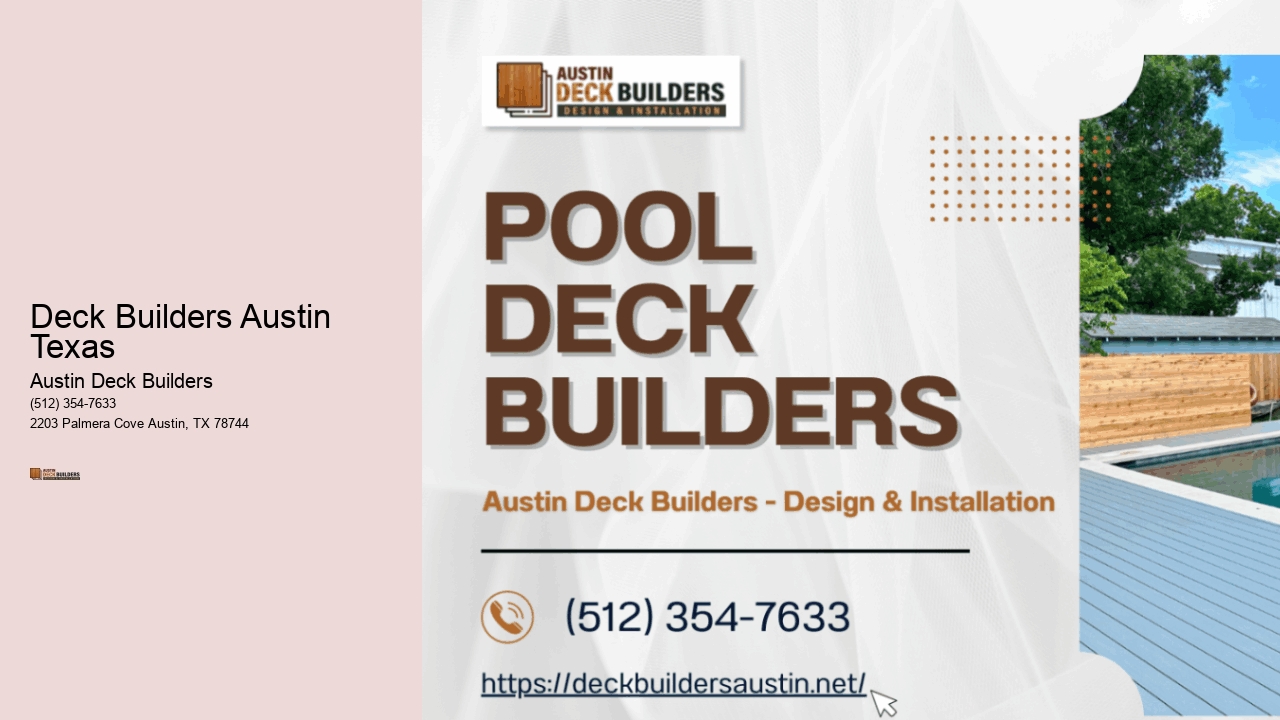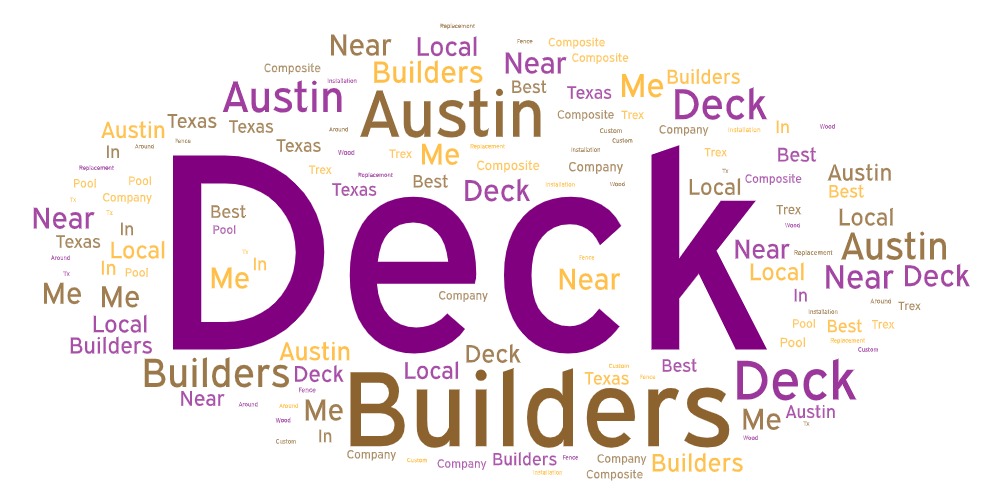

Austin Deck Builders – Transforming Backyards into Everyday Retreats
A well-built deck should be more than just an addition—it should be the heart of your outdoor living. At Austin Deck Builders, we specialize in crafting custom decks that feel like natural extensions of your home. Whether you’re dreaming of a cozy corner to relax or a spacious outdoor area to entertain, our team brings expert craftsmanship and personalized design to every project.
We begin with a collaborative consultation to understand your space, needs, and aesthetic. Whether you prefer the warmth of natural wood or the longevity of composite decking, we offer durable materials that withstand Austin’s sun, storms, and seasonal shifts—while matching your style. From multi-level layouts to custom features like built-in seating and sleek railings, every element is tailored with care.
Our decks are built to last. With a focus on structural integrity and safety, we use only high-quality materials and proven construction techniques. Whether it’s a modest upgrade or a full-scale build, we apply the same meticulous attention to every detail—from the foundation to the final finish.
We believe in honest communication and a smooth process. You’ll always know what to expect with clear timelines, transparent pricing, and consistent updates. Our crews work respectfully and efficiently, keeping your property clean and minimizing disruption.
With years of experience and a reputation for reliable service, Austin Deck Builders is your trusted partner for outdoor transformations. We take pride in building decks that not only look great—but become your favorite place to unwind, entertain, and make memories.
Ready to turn your backyard into your go-to space? Contact Austin Deck Builders – Design & Installation and let’s get started.
Deck repair contractors begin by conducting a thorough initial inspection of the roof deck to identify any visible signs of structural damage. They examine the surface for common issues such as cracked or splintered wood, loose boards, and signs of rot or mold. The contractors also look for discoloration and water stains that might indicate past or ongoing leaks. This visual assessment is critical in determining the extent and urgency of repairs needed.
After the surface examination, attention is turned to the underlying support structures. Contractors assess the beams, joists, and posts that hold up the deck for integrity. They check for soft spots, wood decay, and pest infestation, which could compromise the deck's strength. Particular focus is given to areas where the deck attaches to the house, known as ledger boards, as failure here can lead to catastrophic collapses.
The next step involves testing the stability and safety of the deck through various methods including applying weight or pressure on certain areas to simulate normal usage conditions. Contractors may use specialized tools to measure moisture content in wood or employ other diagnostic equipment like ground-penetrating radar (GPR) if internal decay is suspected but not visibly apparent.
Following a comprehensive assessment, contractors compile a detailed report outlining all findings along with recommendations for repairs. They prioritize issues based on severity and potential risks to safety. The repair plan includes timelines and cost estimates while considering factors such as weatherproofing needs specific to roofs, material selection for longevity in outdoor environments, and compliance with local building codes. Clients are then able to make informed decisions about proceeding with repairs to ensure their roof deck remains structurally sound and safe for use.
| Entity | Definition |
|---|---|
| Multi-Level Decks | Decks designed with multiple connected levels for larger outdoor spaces or sloped yards. |
| Wraparound Decks | Decks that extend around multiple sides of a home, providing expansive outdoor living space. |
| Detached Decks | Standalone decks not attached to the home, often used for garden or poolside settings. |
| Covered Decks | Decks built with overhead protection like roofs or pergolas to provide shade and shelter. |
| Deck Expansion | The process of enlarging an existing deck to accommodate more space or features. |
When you're planning to add a deck that complements your roof structure, it's essential to enquire about the builder's experience. Ask how long they have been in the business and whether they have specific expertise in constructing decks that integrate with existing roofs. This can assure you of their capability to handle the architectural nuances that come with such projects.
Before any work begins, it’s crucial to verify that your deck builder is licensed and insured. It protects not only them but also you as a homeowner. Ensure they carry both general liability insurance and workers' compensation, which will cover any accidents or damage to your property during construction.
Discussing the design process is key in ensuring that your vision aligns with the builder's capabilities. You should ask about the types of materials they recommend for durability and aesthetics, especially since the deck will be exposed to various weather conditions beneath your roofline. Also, inquire about their approach to seamlessly blending new structures with existing architecture.
Understanding the timeline for project completion is fundamental when adding complex structures like a deck under a roof overhang. Inquire about how long it will take from start to finish, including any potential roadblocks that could cause delays. Additionally, ask who will manage the project on-site daily to ensure smooth progress.
Budget discussions are critical; ask for an estimate of total costs upfront. Have them break down expenses between labor, materials, permits, etc., so you know what you're paying for exactly. Clarify payment terms as well – how much needs to be paid upfront, if there are progress payments or if full payment is due upon completion.
Since decks under roofs often require additional permits due to structural implications on the house's envelope, confirm who handles this bureaucracy. Your builder should know what’s needed in your area and be willing to obtain all necessary approvals before starting work—this ensures everything is up-to-code.
Finally, understand what happens after construction ends. Ask about warranties offered on workmanship and materials—these can provide peace of mind against future problems. Also discuss post-completion support: Will they assist with maintenance tips? What happens if issues arise shortly after finishing? Knowing this information up front can save you headaches later on.

A replacement includes demolition of the old deck, inspection of footings and framing, and rebuilding with updated materials and design.
In most areas, yes permits are required for new construction, major repairs, or structural changes. Your contractor typically handles this.
Costs range from $25-$60+ per square foot, depending on materials, size, features, and labor. Composite decks cost more upfront but save on maintenance.
Yes, most professional deck contractors handle both decking and railing systems, offering integrated design and installation.